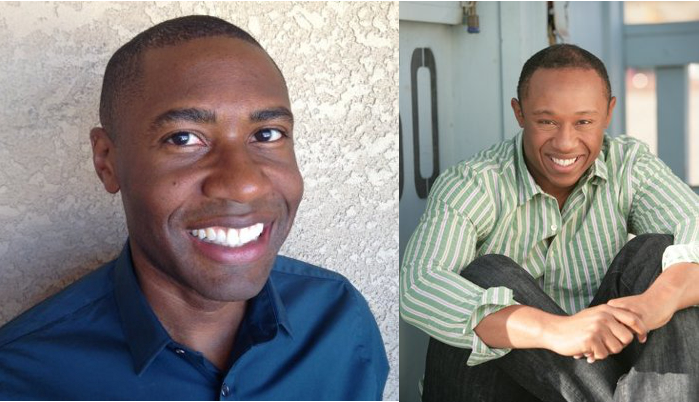Episode 36 – entercharge Founders

COO: Messiah Jacobs & CEO: Savalas Colbert
Tell us a bit about yourselves.
Messiah: Yeah for sure. We have a start-up that we’ve been pushing forward for the last year called entercharge. entercharge’s focus is on creating additional services in the restaurant space. We created a hardware device that sits on top of tables and allows people to charge the battery in their cell phone. We’re also allowing people to do other things right from the table, such as paying for their bill or requesting additional services.
This is something we’ve been doing for the last year and having just done a pilot in LA, it’s been going really well.
How did you guys meet?
Messiah: Yeah, so Savalas and I actually met about two years ago at the Launch conference, and we just hit it off! We were lucky enough to find out that we both live in LA and from there it’s been off to the races. Savalas came up with the idea of the entercharge, and I loved the idea because the cell phone has become so important to our everyday lives that when the battery dies, it’s catastrophic. It’s not a minor thing when your cell phone dies anymore.
Yeah, it’s not, I agree.
Messiah: Yeah, there was this time when your cell phone would die, and you were OK; you would go and find a payphone or you did what you had to do, but now it’s not that way. These things do everything from research to phone calls to [storing] your contacts. I don’t even have any numbers memorised.
Savalas: How else are you going to get your Uber on those late nights [laughs]?
Messiah: So, we met and we’ve just been off to the races. We’ve since competed in a lot of Hackathons and won. You often hear that ‘people of color’ are not represented in this industry, but we’ve made sure that at Hackathons and at different events people know that there are people of color in tech moving things forward.
We won the first place under the MasterCard challenge [hackathon] with the entercharge product. We showed them how that product could be used as a payment terminal and not just a phone charging device and they were blown away.
Savalas: That’s the beautiful thing about our relationship. Messiah is a business guy and he handles the business side of things. I’m a builder; I like to build things.
Messiah: We have a very dynamic team because of that. We cover both sides of the coin very well, and this year was the culmination of all of that, coming together with us performing so strongly in Hackathons with a totally new product and team.
So, what would you say were the main business and technical challenges in getting to this stage of the company?
Messiah: I think the first one is where do you start? For us, it has always been just starting where you are, figure out what resources you have available to you, and then get then get moving.
One of the things we focused on was educating ourselves. We listened to a lot of podcasts; we wanted to understand the tech space. Right away one of the things that Savalas recommended was The Lean Startup. It was a huge help because 1) we have the same terminology, and 2) we understood that we didn’t need have to have a perfect product to take to market. We can do pilots and get things going.
Is it a lot harder to make an MVP [minimum viable product – in Learn Startup parlance] when you’re working with hardware as opposed to software?
Savalas: Yes. You have to be meticulous, as it can often be thousands of dollars for the MVP of just a small hardware product. Even before that, one of the challenges that we had was even defining what that MVP would be.
Absolutely, yeah. How do you determine what are the core/most important features before anything’s even been built?
Savalas: Just battling it out. There were some features we felt we just couldn’t go to market without.
So, how did you guys go about obtaining investment? What was the process?
Messiah: So, we’ve been bootstrapping for the last two years and we’ve just gotten our first angel round of investing. It’s been challenging. We did have meetings where we felt like we didn’t get the respect or the attention that we deserved, because we’ve proven multiple times that we can succeed and can create things, and Savalas’s pedigree and engineering background are unparalleled in this industry.
I think the industry as a whole needs to be more accepting; that good idea can come from anywhere. There are a lot of markets that need to be served. Ideas are not limited by what school you attend, or what your pedigree is. I think there needs to be openness in the venture capitalist world, and also in our industry as a whole.
Advice for others?
Messiah:
- I’ll just say that I think one [piece of advice] is to have perseverance.
- Also, I think one of the most important things is imagination. I’ll go very philosophical: your imagination is really your most powerful gift. Everything that we’re looking at started in somebody’s mind. It started as a dream, as an imagination, as a thought. Don’t be afraid to imagine things and then get out there and do everything possible to support that idea.



